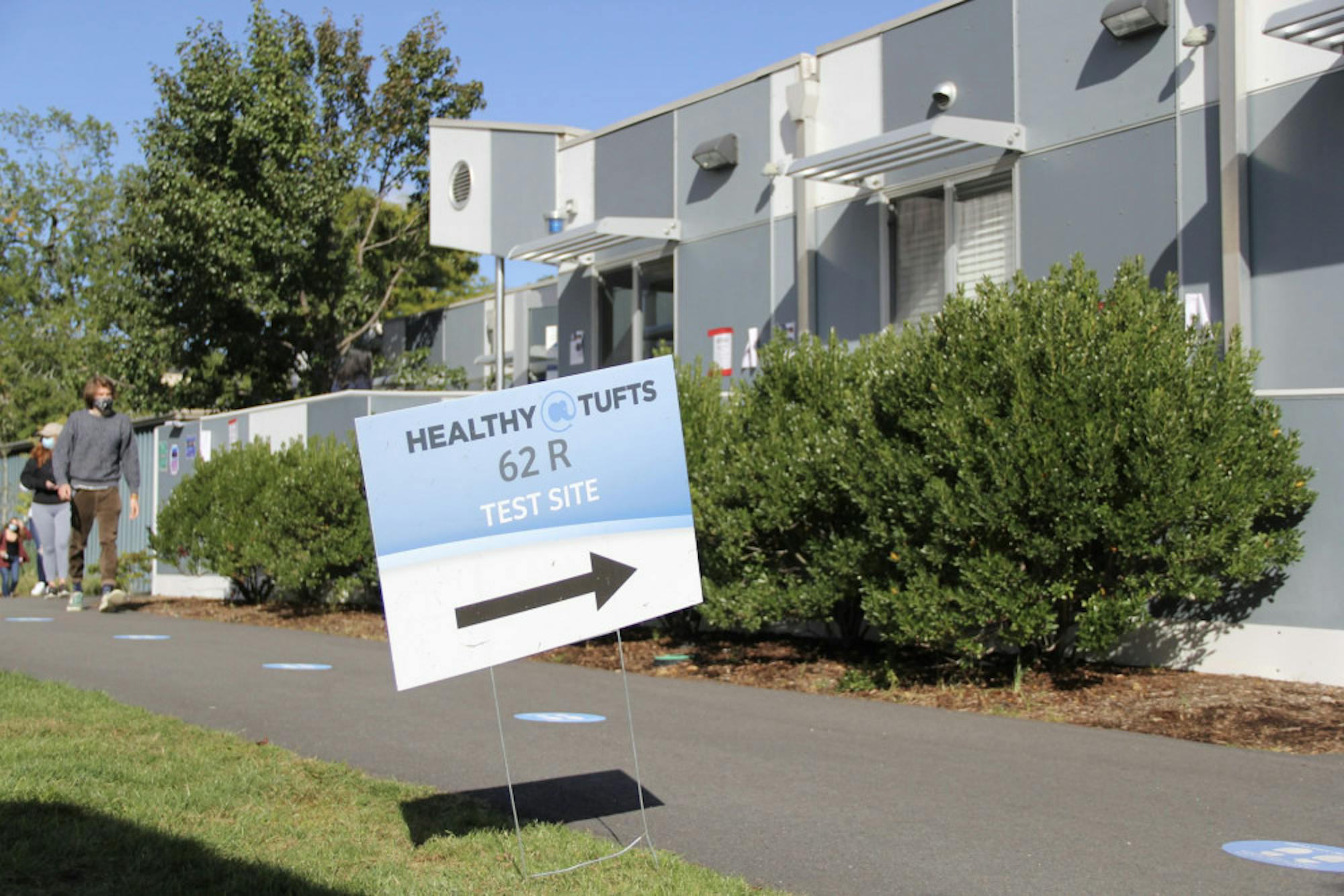The university recently announced that it will end COVID-19 testing and require students living on campus to leave their housing prior to Senior Week, causing frustration and concern among many students in the senior class.
The university has scheduled virtual events for Senior Week from May 17–21, as well as a virtual Commencement ceremony on May 23, but is saying that students should celebrate at home.
"When students finish exams, they should take a COVID-19 test to make sure they are negative, then travel home to minimize risk of exposure to others," Dean of Student Affairs and Chief Student Officer Camille Lizarríbar wrote in an email to the Daily. "Once home, they can engage in the virtual events planned for Senior Week and celebrate Commencement virtually with their friends and loved ones."
Though Tufts is making students who live on campus move out of their on-campus housing before these events, most of the senior class lives in off-campus houses in the Medford/Somerville area. TCU Senate President Sarah Wiener, Vice President Grant Gebetsberger and Treasurer Sharif Hamidi conducted a survey and found that 95% of respondents had finalized plans to stay in the Medford/Somerville area for Senior Week. They published a subsequent op-ed in the Daily on April 5, condemning Tufts for its decision to end COVID-19 testing and remove seniors from on-campus housing before Commencement.
Gebetsberger, a senior, said that he is specifically concerned about the inequities this decision creates between students living on and off campus. According to Gebetsberger, Wiener and Hamidi in their op-ed, many students living on campus are on financial aid and are students of color.
“I think the off-campus seniors aren’t going to change their behavior at all, but obviously on-campus seniors have no choice but to change their behavior because their housing will end,” he said. “Those are the folks that I have been most concerned about from the get-go … They won’t be able to stay and safely and socially distantly have a picnic with their friends during Senior Week outside, or have drinks on the porch, or take [graduation] photos during that week … just those little things [are] obviously going to be much more difficult.”
Lizarríbar said that she understands the disappointment and concern students feel about the university's decision, but feels that the administration has made the correct choice regarding the virtual nature of Senior Week and Commencement.
“We fully understand that some graduates and their families are upset at the decision to conduct Senior Week and Commencement virtually, and we share their disappointment that we are unable to gather safely to celebrate due to the threats that are still posed by the pandemic,” Lizarríbar said. “However, we are absolutely certain that we have made the correct, safest, most equitable and most responsible decision given what we know and what we don’t at this time.”
Lizarríbar explained that the university’s decision was motivated by Massachusetts public health guidelines, and noted that variables such as new COVID-19 variants, vaccine accessibility and some disregard from students regarding the university’s COVID-19 guidelines further emphasized the importance of a virtual Senior Week and Commencement.
“We have an obligation to protect the health of our Tufts community and our neighbors and to treat each other equitably,” Lizarríbar said. “Students who choose to stay in the area after exams are over to participate in unofficial Senior Week and Commencement gatherings will be choosing to put community members and others at risk and creating inequities among their peers, including those who are remote.”
However, the 95% of seniors who responded to the survey say they plan to stay. Additionally, 98% of survey respondents said that Tufts should continue to provide COVID-19 testing through May 23, and every single respondent said Tufts should allow seniors to remain in their on-campus housing through May 23.
Gebetsberger said that while he understands that the university is unlikely to reverse its stance on extending both COVID-19 testing and on-campus housing, he would like to see further guidance from the university on safety measures.
“I would like to see … some encouragement or some acknowledgement about the fact that they know that those of us off campus are going to be staying through the week for the most part … and maybe provide some guidance on tips to stay safe,” he said.
Gebetsberger hopes that despite the restrictions, seniors will have a Senior Week that provides them with opportunities for connection and closure.
“I hope that those of us who are still going to be in the area are able … to celebrate our four years here, because [it’s] just really important to find some space for joy and celebration after what has been a really tough year,” he said.
Tufts will resume testing for students who are living on campus or attending in-person activities this summer, according to Medical Director of Health Service Marie Caggiano.
“Students who are living on Tufts campuses or are attending in-person activities over the summer will be required to participate in surveillance testing,” Caggiano wrote in an email to the Daily. “The university encourages all students to be aware of public health guidelines and by following those guidelines, they can reduce the risk to themselves and their communities.”






